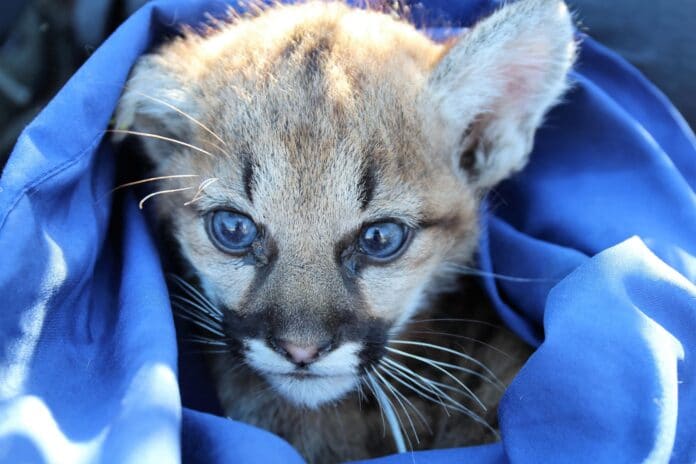A recent necropsy report shows that two mountain lion kittens, P-100 and P-102, discovered last November in a Thousand Oaks office complex as part of an orphaned litter of four, had residues of three different types of rat poisons in their livers, according to National Park Service (NPS) officials.
The kittens were only about six weeks old at the time. The pair died a few days after being discovered; with the Postmortem exam finding they were both emaciated and heavily infested with fleas, with brain inflammation and feline parvovirus.
Biologists with the Santa Monica Mountains National Recreation Area, who have been studying the local mountain lions for 20 years, say the necropsy report revealed two firsts: the first time a mountain lion in the park’s study has been affected by parvo, as well as these kittens being the youngest mountain lions in the study with rat poison (anticoagulant rodenticides) found in their systems.
Feline parvovirus (aka feline panleukopenia) is a highly contagious virus that can cause illness and death to cats and some wildlife species, particularly young kittens. The necropsy report noted that signs of the disease were observed before the kittens died, including seizures.
Feline Parvovirus is spread among cats and cannot be spread to dogs. On the other hand, Canine Parvovirus is spread among dogs and can, in fact, be spread to cats. But neither type will affect humans.
P-101 and P-103 are the two kittens in the litter that survived; and are now being raised in captivity at the Orange County Zoo in Irvine.
Local adult mountain lions have recently died from ingesting various combinations of rat poison, including a young, uncollared cat found dead in a backyard in the western Santa Monica Mountains in June 2021.

